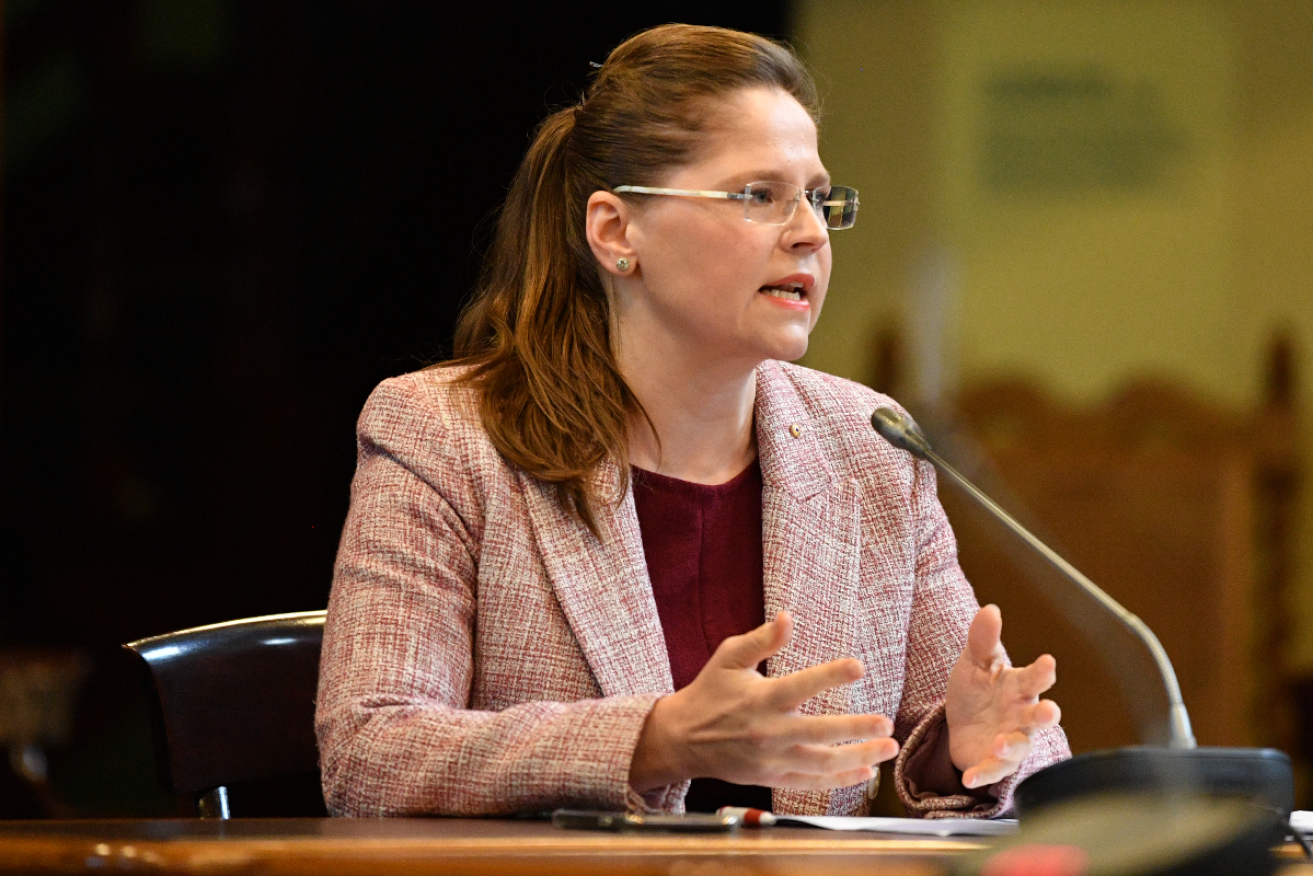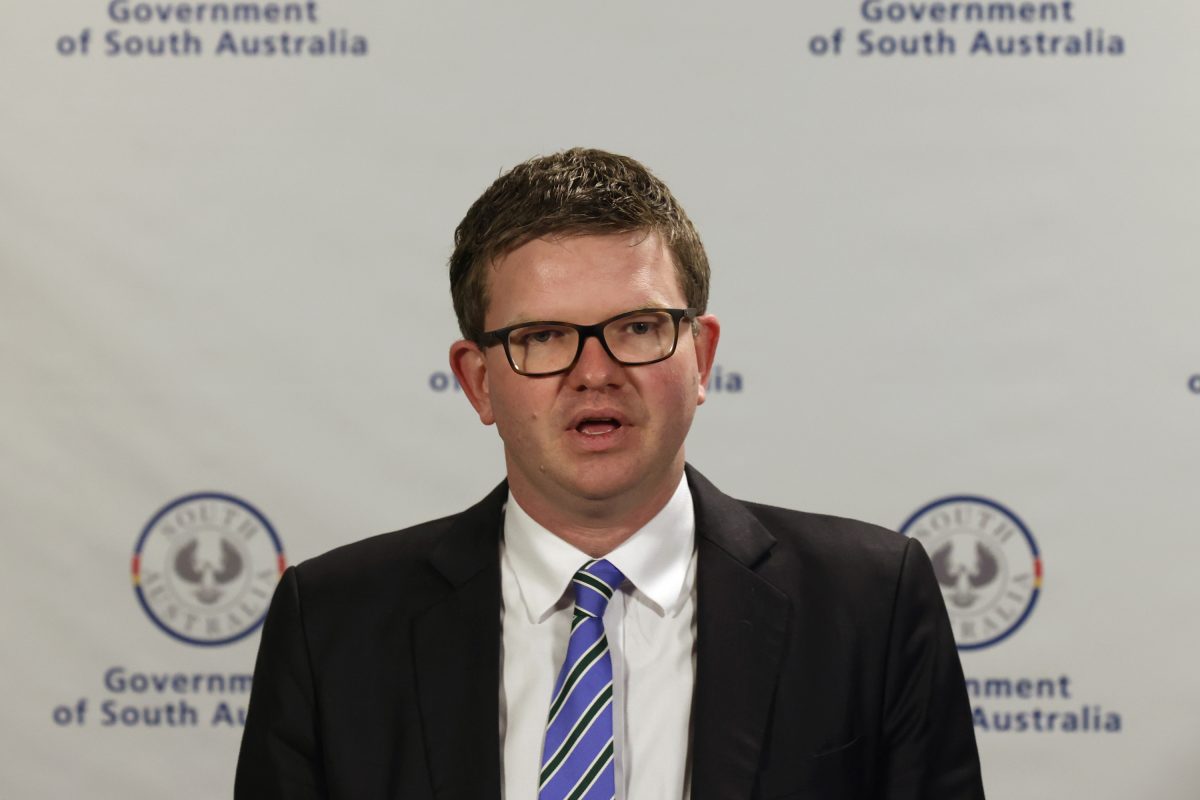Call for better nursing and midwifery services in regional SA hospitals
The nurses union has launched a petition to demand increased midwifery services in regional South Australian hospitals, along with better incentives for regional nurses and midwives.


Australian Nursing and Midwifery Federation state branch CEO Elizabeth Dabars is calling for better incentives to get regional healthcare workers. Photo: David Mariuz/AAP
In the petition opened this morning, the Australian Nursing & Midwifery Federation SA branch encouraged “all members from the hospitals and the wider community to demand action be taken”.
The union’s SA CEO Elizabeth Dabars said significant workforce shortages meant birthing and midwifery services had to be suspended in Whyalla, Kapunda, Kangaroo Island and Waikerie.
“An independent review into Whyalla Hospital found one of the issues was a lack of workforce incentives to attract staff to Whyalla,” Dabars said.
“We have been campaigning for years for improved incentives to attract and retain nurses and midwives in regional areas of South Australia… enough is enough.”
Australia-wide data released in June 2023 showed a $6.5 billion spending deficit in annual rural healthcare, equating to each person in rural Australia missing out on approximately $850 a year in healthcare access.
The same report indicated metropolitan areas had on average 478 medical practitioners for every 100,000 people, while small rural towns had just 127 in the same population.
Dabars said the ANMF was “urgently” calling on the state government to put more incentives in place, focussing on improved relocation allowances, better assistance with removal costs, and improved support with HECS-HELP repayment.
The Greens have joined the ANMF’s call, with member Robert Simms saying the government “must listen to ANMF and urgently provide incentives that will ensure that there are enough nurses and midwives to keep regional health services fully functioning”.
“It is deeply concerning to hear that hospital services in our regions are being reduced or may close simply because the Government has failed to provide the necessary support for nurses and midwives to work in regional locations,” Simms said.
Simms said if the state government did not “listen to ANMF”, there was a “serious risk that people living in the regions will be left unable to access life saving healthcare”.
Health Minister Chris Picton said the government would do “everything we possibly can” to support nurses and midwives in South Australia.

Health Minister Chris Picton. Photo: Tony Lewis/InDaily
Picton said the Department for Health and Wellbeing had been working with the ANMF since January last year to “formulate a new rural and remote inventive package for nurses and midwives across South Australia”.
“Significant incentives are already being provided in regional areas as per the rates outlined in the current Enterprise Bargaining agreement,” he said.
“In addition to this, to enhance the attractiveness of rural and remote placements, the Government has introduced additional relocation incentives of up to $15,000.”
In December 2022 the South Australian Employment Tribunal approved the Nursing/Midwifery (South Australian Public Sector) Enterprise Agreement following negotiations involving employees covered by the agreement.
Dabars said the state government had not followed through on commitments made during those negotiations, saying “nothing has been actioned”.
Picton said negotiations with the ANMF were “ongoing”, and that he remained “dedicated to reaching an agreement that benefits all involved”.
“It is important to ensure that we reach a position of agreement that does not leave nurses and midwives worse off compared to their current arrangements. We continue to negotiate with the ANMF to reach a mutually beneficial resolution,” he said.
“The government greatly values the essential contributions made by nurses and midwives to our healthcare system, particularly in regional areas where their presence is crucial.”
The SA ANMF branch is also advocating for permanent employment opportunities for graduates transitioning into professional practices as another solution to regional health requirements.
This campaign follows calls from the National Rural Healthcare Alliance reported in February for increased funding after the 2024 State of Australia’s Regions report showed average life expectancy remains lower in regional areas across Australia.




